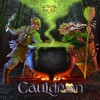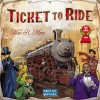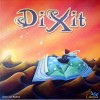profile badges
...
...
...
...
recent achievements

I Got What I Wanted
Add a game to your Owned list that was previously in your Wish list.
Add a game to your Owned list that was previously in your Wish list.

Gamer - Level 2
Earn Gamer XP to level up!
Earn Gamer XP to level up!

Rated 10 Games
Rate 10 games you have played.
Rate 10 games you have played.

My First Favorite!
Add a game to your list of Favorites by clicking the "Favorite" button on a game page.
Add a game to your list of Favorites by clicking the "Favorite" button on a game page.









Cauldron
I’ve played a prototype of this game a few times and thought I’d let others know what it’s like.
About me: I generally like games that don’t involve too much overarching strategy and give the players a fairly equal chance of winning regardless of experience level, and I play for fun more than to win. I also enjoy whimsy and thematic depth. If that sounds like you, then you will definitely enjoy this game.
Overview: The game is based on collecting ingredients and using them to brew potions; each potion brewed will get you Magic points, which you use to advance toward the goal of 35 points. You also use these points to purchase things like more potion recipes (giving you more options to get points), spells (which give you special abilities), or fields (which grow ingredients.) Each player plays as a character, having 2 unique abilities.
Gameplay: game starts with a number of fields bearing various ingredients, and each player as a unique character; each player draws 2 random potions and a basic spell. Players take turns harvesting an ingredient from the fields, stealing an ingredient from another player, making a potion, and/or casting a spell. When the last ingredient is harvested, the season is over – unused ingredients are discarded from the players’ hands, the fields are repopulated with new ingredients, and players get a chance to spend their victory points on new recipes, spells, new fields, or cellars (which can hold 1 ingredient between seasons.) Every season, an Omen card is played, which has an effect on gameplay lasting the entire season (for example, forcing certain fields to produce double the ingredients, or making them infertile.)
The fields are hex tiles of cool and weird ingredients, such as frog legs, spider webs, crystals, snakes. Normally fields grow one ingredient per season, but that can change with spells and Omen cards. If the field of your desired ingredient has already been harvested, you can try to steal one from your opponent by rolling a die for 4-6. New fields do not randomly generate, but must be added by players at the beginning of each new season.
The potions require a few ingredients; naturally the more points a potion gives you, the more ingredients it requires. Brewing a potion, like harvesting an ingredient, is an action, meaning that if you take an ingredient on your turn and you are ready to make a potion, you must wait until your next turn (the exception being quick potions, which can be brewed without using up a turn.)
Spells can be played at any time in the game, and give abilities like harvesting an extra ingredient, stealing ingredients from others, forcing others to skip a turn, or cancelling a spell cast by another player. Spells add another level of interaction between players, and can greatly alter the momentum of a game, especially the advanced spells; they make this game noticeably different from other resource-gathering board games I’ve played.
There are 7 characters, each with 2 special abilities that can be used once per season, like harvesting an empty field, brewing two potions at once, getting a free spell every season, etc. These initially don’t seem too important, but can be of great use if you build your strategy with them in mind.
The board used to keep track of Magic points has a number of “checkpoints” where players either get bonus points, or a spell, or the ability to get advanced spells/recipes. It is designed to keep things from stagnating and to prevent domination by a single lucky (or skillful?) player, and it seems to work well in both respects. The use of points for winning and also for buying recipes/spells is clever, and forces the player to prioritize being closer to winning vs having more options to advance.
All the art is very well done and the game pieces are enjoyable to look at, especially the character cards. The spells and recipes all have unique D&D-ish names, and the alchemy/potions theme is very strong throughout the game.
Playing the game: the game has a very smooth and easy flow initially, which becomes more jagged and unpredictable as some players score big points, and becomes dramatic toward the end when almost every player is a potential winner, and some players are certain they’ve just won, only to be knocked back with an advanced spell. It generally doesn’t take long for players to make a decision each round, so there are no long pauses in action.
At the same time, the spells and the ability to steal ingredients from each other makes the game very interactive and dynamic, and you always have to be on guard as to what other players are scheming. This makes the game feel very different from something like Settlers of Catan, where you mostly mind your own business and try to get what you need, with an occasional trade. Everyone’s potion recipes are always facing up, and you can see who is vying for which ingredients. If a player can’t get the ingredients needed for a potion, he/she is very likely to try to steal it from another player, who will also try to steal it from someone else or play a spell, the end result being a lot of changes to the board in a few turns. This might sound overly complicated but in fact, the only way this game could be more fun for me is adding more chances to use spells against other players (but then again, I’m the type who takes pleasure in ruining others’ carefully-planned strategies. Maybe this is why my friends rarely invite me over, hmm…)
In between seasons, before the fields are repopulated with ingredients, players get a chance to do one of the following: add a new field, get a new recipe, a new spell, or a cellar (each of these cost a certain number of points, setting you back on the scoreboard.) Initially I felt that the limitation to just one purchase will make the game feel too slow, but it worked out fairly well. Spells and recipes get more expensive the more you already have, and there are usually enough new fields being added to provide ingredients for the increasing number and variety of recipes.
Weak points: This still feels like a new game to me, and as such I haven’t hit on any serious deficiencies. I haven’t played it as a 2-person game, but it feels like it might lose some of that magic (pun only slightly intended) of unpredictability and player interaction. I also feel like the game was over too quickly – I would have liked to play longer, to have a larger board and to have more chances to use the advanced recipes and spells – but I imagine that can be remedied by playing to a higher score. I’ll have to try that variant next time.
Overall: This game was wicked fun, and I’m looking forward to playing it again, as different characters and using different strategies. I feel like most people will get the hang of it fairly quickly, even without previous exposure to similar types of games. I didn’t end up running into any situations where the game mechanic got too complicated to figure out, though it certainly helped to have the game’s creator clarifying the rules. It might be a bit busy for someone’s first board game ever, but I think this game will appeal to anyone from casual to experienced gamers, with lots of replay value without being inaccessible or esoteric.